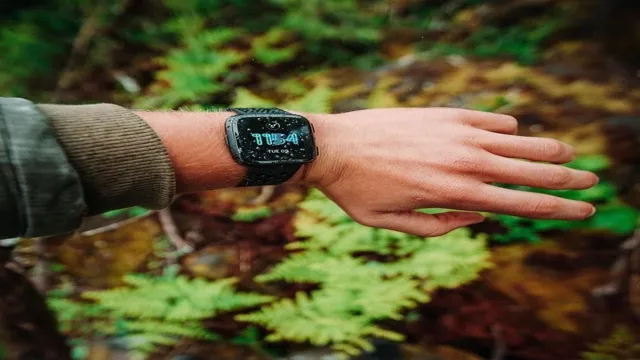Are you looking to invest in a Fitbit watch but you’re uncertain about their lifespan? You’re not alone! When deciding on a new piece of technology, it’s understandable to be curious about its durability and shelf-life. Fitbit watches have risen to fame in recent years as a staple for fitness enthusiasts and those looking to increase their daily activity levels. But how long do Fitbit watches last? The answer isn’t as simple as a quick Google search, as there are several factors to consider.
In this blog post, we’ll explore the longevity of Fitbit watches and provide you with all the information you need to make an informed decision. So, sit back and relax as we dive into all things Fitbit!
Introduction
If you’re in the market for a fitness tracker, one of the questions you might be asking is: “How long do fitbit watches last?”. The answer to this question really depends on a few different factors. First, the specific model of Fitbit watch you have will affect its lifespan.
Generally, the newer models tend to have a longer battery life and overall lifespan. Additionally, how often you use your Fitbit watch and how you take care of it will also play a role in its longevity. If you use your watch every day and don’t take proper care of it, it’s likely to have a shorter lifespan than if you use it more sparingly and take good care of it.
Nevertheless, the average lifespan of a Fitbit watch is around 2-3 years. So, if you’re looking to make an investment in a fitness tracker, you can expect your Fitbit to serve you well for a couple of years before needing to be replaced.
Importance of Knowing Fitbit Watch Lifespan
Fitbit watch lifespanIntroduction: Knowing the lifespan of your Fitbit watch is essential in order to keep track of its performance and to predict when it needs replacement. It can be quite frustrating to have your watch die out on you during a workout or in the middle of the day, especially if you rely heavily on it for fitness tracking and other features. In this blog section, we will discuss the importance of knowing your Fitbit watch’s lifespan, how to extend its life, and when to replace it to maintain a seamless tracking experience.
So, let’s jump into it!

Factors Affecting Fitbit Watch Lifespan
Fitbit watches have become ubiquitous in the fitness world. But how long do Fitbit watches last? Several factors influence the lifespan of these watches. The type of model you own, how much you use it, and how well you maintain it can all impact its longevity.
Usually, Fitbit watches last between two to five years, depending on these factors. For instance, if you frequently wear your Fitbit watch, you may need to charge it more often, which can lead to reduced battery life over time. Furthermore, watches with touchscreens may be more susceptible to damage from bumps, scratches, and sweat, shortening their lifespan.
If you’re looking to extend the life of your Fitbit watch, it’s crucial to take good care of it. Proper maintenance includes keeping it clean, not exposing it to extreme temperatures or moisture, and charging it when the battery is low.Overall, the lifespan of your Fitbit watch depends on a variety of factors, including your usage, type of device, and upkeep.
Ensuring that these factors are in check can help you use your Fitbit watch for many years to come. So go ahead, wear your Fitbit as often as you like as this can aid you in meeting your fitness goals, but also make sure to take proper care of it to keep it ticking for longer.
Battery Capacity and Usage
When it comes to the lifespan of your Fitbit watch, battery capacity and usage are critical factors to consider. Battery capacity is a measure of how much energy your watch’s battery can store. The higher the capacity, the longer your watch can go without needing a recharge.
One of the biggest factors that can affect your Fitbit’s lifespan is how often you use it. If you use it excessively, your battery will drain faster, leading to more frequent recharging and ultimately a shorter lifespan. A Fitbit watch that is only used occasionally or left idle for extended periods can also experience issues with battery life.
Another important factor is the type of activities you frequently engage in. For instance, using certain features like GPS for long periods can quickly drain your battery. To maximize your Fitbit watch’s lifespan, you should take care to use only the features you need and recharge your battery before it becomes completely drained.
In addition, you should avoid exposing your watch to extreme temperatures, which can also negatively affect battery life. By keeping these factors in mind, you can help to extend the lifespan of your Fitbit watch and ensure that you get the most out of your investment.
Types of Activities and Usage Intensity
Fitbit Watch LifespanThe lifespan of a Fitbit watch can greatly depend on the types of activities you engage in and the intensity at which you use it. For instance, using your Fitbit watch during high-intensity workouts such as weightlifting or boxing may result in more wear and tear on the device leading to a shorter lifespan. Similarly, activities such as swimming may also affect the lifespan of your Fitbit watch as they are designed with specific water-resistant ratings which can be affected by prolonged exposure to water.
Additionally, factors such as the frequency of usage, exposure to extreme temperatures, and the quality of the charging cable can also play a role in the longevity of your Fitbit watch. Taking good care of your Fitbit watch, storing it in a safe place, and using it as recommended can help prolong its lifespan.
Average Fitbit Watch Lifespan
If you’re a Fitbit owner, you might be curious about how long your device will last. On average, Fitbit watches have a lifespan of two to three years, depending on usage and care. However, this doesn’t mean that your watch will stop working once it reaches that point.
It just means that the battery might not hold a charge as well, and the overall performance might start to decline. It’s important to take care of your watch by avoiding extreme temperatures, charging it properly, and keeping it clean. If you notice any issues with your watch, such as a shorter battery life or connectivity issues, you might want to consider purchasing a new one to ensure you’re getting the most out of your fitness tracking.
Statistics and Data on Fitbit Watch Lifespan
Fitbit watch lifespanFitbit has become one of the most popular brands in the smartwatch industry and has made a huge impact on the fitness technology market. With their advanced features, including heart-rate monitoring, fitness tracking, and sleep analysis, many users wonder what the average lifespan of a Fitbit watch is. According to research data, the average lifespan of a Fitbit watch is approximately 2-3 years, with some exceeding this period and others falling short.
However, a lot depends on how the watch is used, how well it is taken care of, and how often it is charged. The lifespan of the watch can be extended by keeping a few things in mind such as avoiding overcharging, wiping down the watch regularly, and keeping it away from extreme temperatures. By taking good care of your Fitbit watch, you can increase its lifespan and maintain its high-performance capabilities for a long time.
Prolonging Fitbit Watch Lifespan
Fitbit watches are designed to be durable and last for several years, but there are several ways to prolong their lifespan. First, always make sure to keep your watch clean and dry. Avoid exposing it to water for extended periods, as this can damage the internal components.
Second, be mindful of how you charge your watch. Overcharging can reduce the battery’s lifespan, so try to keep your watch charged between 20% and 80% whenever possible. Third, consider investing in a protective case or screen protector to prevent scratches or cracks.
Lastly, stay on top of software updates and regularly sync your watch to your smartphone to ensure that it’s functioning properly. With proper care and maintenance, a fitbit watch can last for several years, providing you with accurate fitness tracking and other useful features along the way.
Tips to Extend Fitbit Watch Usage Time
If you’re a proud owner of a Fitbit watch, you’ll want to make sure it lasts as long as possible. Fortunately, there are several tips to ensure your watch stays functional for an extended period. Firstly, limit the number of third-party apps installed on your Fitbit watch.
Many apps can quickly drain battery life, ultimately shortening the lifespan of your watch. Secondly, always ensure your Fitbit is updated with the latest software. Updates often include performance improvements, such as better battery management and bug fixes.
Thirdly, use your Fitbit’s battery-saving features, such as ‘Always-On Display’ and ‘Quick View.’ The ‘Always-On Display’ feature is handy, but disabling it can help extend your watch’s battery life significantly. Lastly, always charge your watch fully and keep the charger clean.
Avoid overcharging your watch, as this can also deplete its lifespan. By implementing these tips, you can significantly extend the lifespan of your Fitbit watch and enjoy all its fantastic features for much longer.
Conclusion
In conclusion, how long a Fitbit watch lasts is entirely up to its wearer. If you use it frequently and take care of it, it will surely clock in many years by your side. But like any relationship, if you neglect it or let it collect dust on a shelf, it won’t last very long.
So, as they say, love your Fitbit, and it’ll love you back for years to come.”
FAQs
What is the average lifespan of a Fitbit watch?
The average lifespan of a Fitbit watch can vary between 2-5 years, depending on the model and usage.
Can the battery in a Fitbit watch be replaced?
Yes, most Fitbit watches have batteries that can be replaced by a professional or with a replacement kit ordered from the manufacturer.
How can I extend the battery life of my Fitbit watch?
You can extend the battery life of your Fitbit watch by ensuring it’s fully charged before using, turning off features you don’t use regularly, adjusting the screen brightness, and using power-saving modes.
What happens when the battery in my Fitbit watch dies?
When the battery in your Fitbit watch dies, you’ll need to either replace it or purchase a new watch. It’s recommended to recycle the old watch or dispose of it properly.
Can a Fitbit watch be charged overnight?
Yes, a Fitbit watch can be charged overnight, but it’s best to disconnect it once it’s fully charged to avoid overcharging and potentially damaging the battery.
